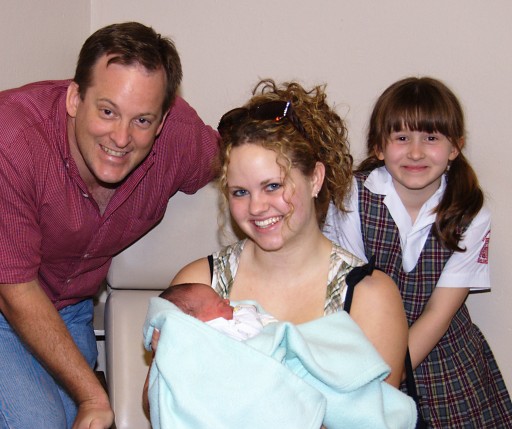I’ve got a bunch to say since Asier was born, but I wanted to weigh in on the Walter Reed scandal by telling a story from my experiences in the Army.
We were in the field, doing a training exercise. We had planned it for months and were executing it for some much needed operational training and team-building. As we were setting up I was notified by the battalion XO (operations) that we would have to stop what we were doing and go on a police call (cut grass, pick up any trash, paint, pretty up the range), because our the Division commander (General) was coming for a visit.
"Don’t you think he wants to see us training?" I asked.
"Just fucking do it, Captain!" was the Major’s reply. This was to be beginning of a beautiful friendship, for sure.
So we reluctantly dropped our months of preparation by the wayside and prettied up the range. My soldiers were extremely pissed. The 1SG fumed, but as all good soldiers, we went about, "making it happen."
Brigadier General Rosado arrived with his staff, CSM (Command Sergeant Major, top enlisted man in the division) and assorted sycophants. They walked around, buzzed in and circled, talking to no one but the top officers of the battalion, all the while insulated by his staff.
I’ve got to do something about this. I don’t fucking care if it gets me in trouble. I wormed my way up to the Command Sergeant Major and took him aside.
"Do you want to know what’s really going on here?" I asked him. "Do you want an honest assessment of the training and readiness of your battalion here and now?"
"Of course," he answered.
"Don’t tell us you’re coming. That’s it. Don’t announce, don’t make a big hullabaloo. Come here quietly, just the two of you, show up unexpectedly, and talk to the enlisted soldiers. Ask them what they think, get them to be frank. That’s all I ask."
"I’ll let him know," he replied. The Sergeant Major seemed to be a thoughtful pro-enlisted guy, so I hoped that my comments were welcome. I think he really took them too heart. He seemed a decent fellow. This might work.
A few months latter the CSM resigned and from what I heard through the grapevine, it was over styles of leadership. The CSM wanted to get his hands dirtier. He wanted the hands-on pro-soldier approach that I suggested, but Gen Rosado, for whatever reason, would rather have had his little buzzing snapping field of sycophants.
Whatever.
I bring this up, because the Walter Reed scandal smacks of the same ol’ shit. Forget the fact that the General in charge of Walter Reed had only been there six months. Many are saying he is but a scapegoat. How could he have changed things in six months? Poor guy. It was his predecessor that screwed it all up. Why should he take the blame?
My question to him is this: How many times did you visit the facilities, directly inspect with no announcement to the staff working in those places, talk to patients, demand frank ugly reports from your subordinates? Six months is a long time to be unaware of the problem.
You weren’t fired for not fixing the problem. You were fired for not even knowing about the problem.
But unfortunately, this is the problem with much of the military. Gen Patton said it best, "The more senior the officer, the more time he has to go to the front." Why? Because that’s where the operation is and guess what, Mr. General, YOU’RE IN CHARGE! I’d also add that the more senior the officer, the less time he should give before an inspection. The General should want to know what is really going on in his command. He should trust nothing but his own eyes, his own perception. He is the General. He is in charge.
Stop grooming yourself for bigger and better things and DO YOUR FUCKING JOBS!
With that said, our new Secretary of the Defense, Robert Gates, is really getting on my good side. I like that guy’s attitude, very pro-soldier.



